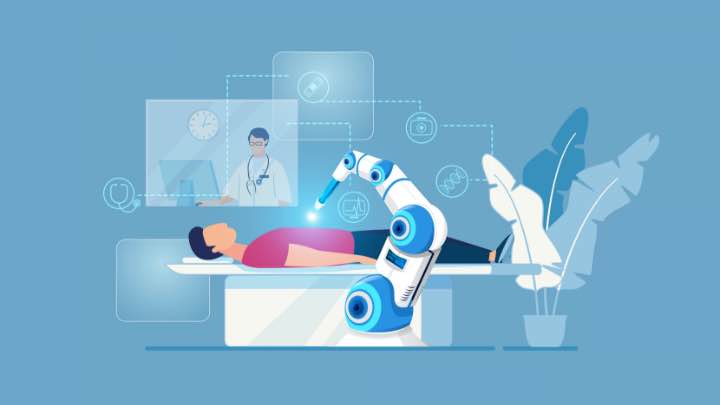In recent years, the healthcare industry has been undergoing a profound transformation fueled by technological advancements. One of the key drivers behind this change is the integration of Artificial Intelligence (AI) into healthcare systems. This powerful technology is reshaping the landscape of patient care, diagnosis, and treatment. In this blog post, we will explore the role of artificial intelligence in healthcare digital transformation, examining the benefits, challenges, and the future implications of this groundbreaking development.
The Current State of Healthcare:
Before delving into the realm of AI, let's take a moment to understand the existing challenges in the healthcare industry. In many parts of the world, healthcare systems are burdened by inefficiencies, rising costs, and a growing demand for services. Patients often face delays in diagnosis and treatment, leading to increased healthcare costs and decreased overall quality of care.
Enter Artificial Intelligence:
AI offers a promising solution to many of the challenges faced by the healthcare industry. Its ability to analyze vast amounts of data quickly and accurately makes it a valuable tool for healthcare professionals. From diagnosing diseases to personalizing treatment plans, AI is proving to be a game-changer in the quest for improved patient outcomes.
Key Applications of AI in Healthcare:
Diagnostic Assistance:
AI-powered tools, such as image recognition algorithms, assist healthcare professionals in diagnosing medical conditions with unprecedented accuracy. For instance, AI can analyze medical images like X-rays and MRIs to identify abnormalities that might be overlooked by the human eye.
Predictive Analytics:
By analyzing patient data, AI algorithms can predict disease trends and identify individuals at risk. This enables healthcare providers to take proactive measures, preventing the onset of certain conditions and improving overall population health.
Personalized Medicine:
AI helps in tailoring treatment plans to individual patients based on their unique genetic makeup, lifestyle, and medical history. This personalized approach enhances the effectiveness of treatments while minimizing adverse effects.
Administrative Efficiency:
AI streamlines administrative processes, reducing the burden of paperwork and allowing healthcare professionals to focus more on patient care. Chatbots and virtual assistants, for instance, can handle routine tasks, appointment scheduling, and patient inquiries.
Challenges and Considerations:
While the integration of AI in healthcare brings about numerous benefits, it is not without its challenges. Privacy concerns, ethical considerations, and the need for proper regulation are paramount. Ensuring that AI algorithms are unbiased and transparent is crucial to building trust in the technology.
The Future of AI in Healthcare:
As technology continues to evolve, the future of AI in healthcare holds even more exciting possibilities. Advancements in natural language processing, robotics, and wearable technology are expected to further enhance the capabilities of AI in patient care. Moreover, the continued collaboration between healthcare professionals, technologists, and policymakers is essential to navigate the ethical and regulatory landscape.
Conclusion:
Artificial Intelligence is at the forefront of the healthcare digital transformation, offering unparalleled opportunities to improve patient care, streamline processes, and make healthcare more accessible and efficient. While challenges exist, the potential benefits are too significant to ignore. As we navigate the evolving landscape of healthcare, the responsible and ethical integration of AI will undoubtedly play a pivotal role in shaping a healthier and more technologically advanced future.


No comments yet